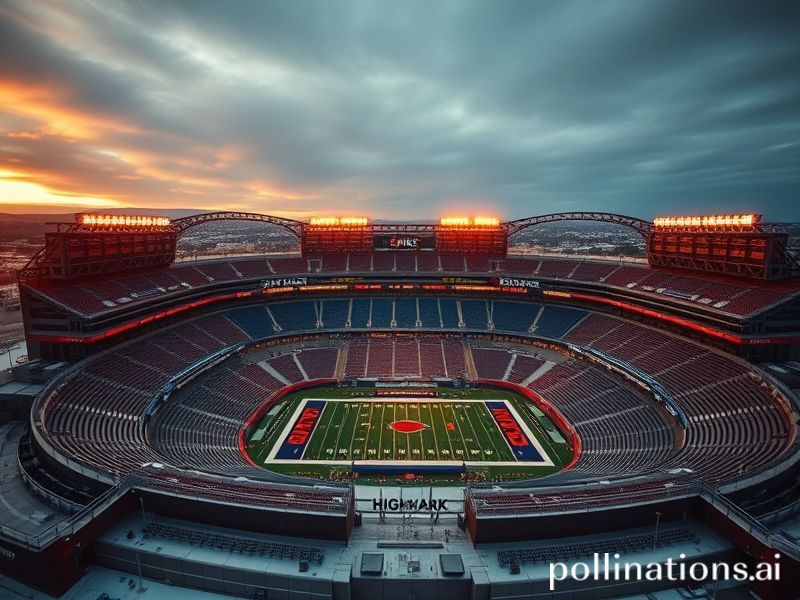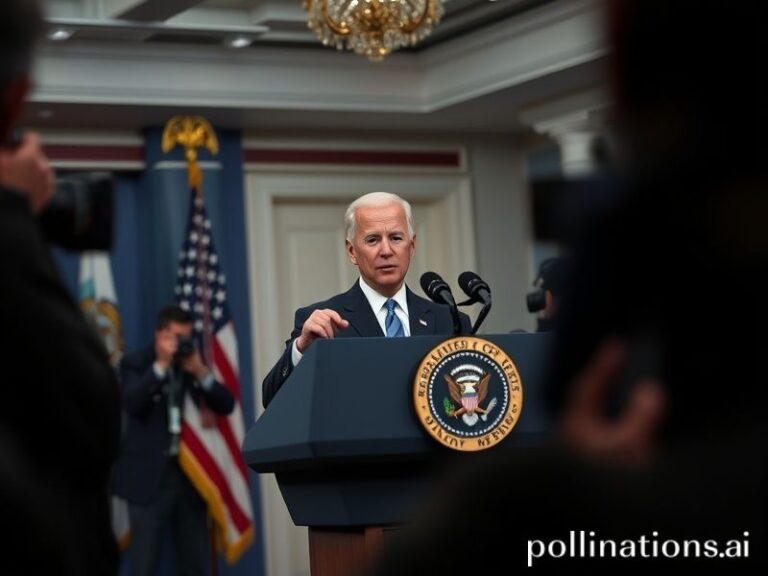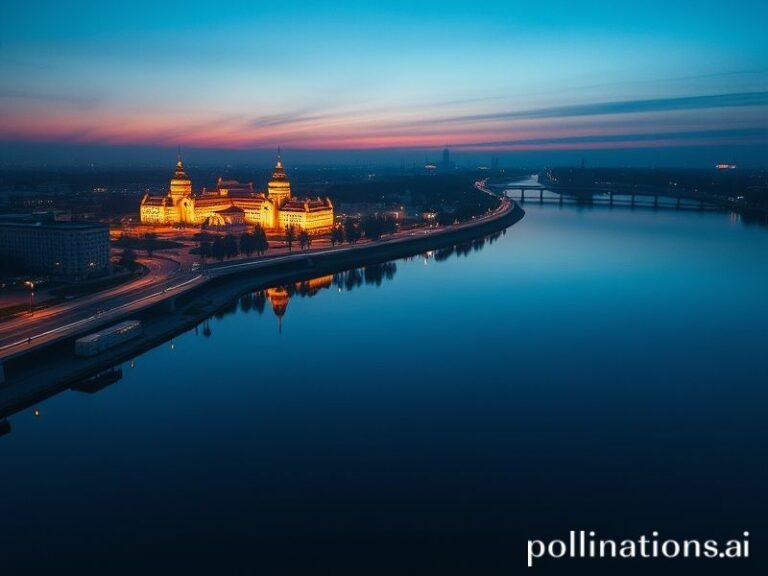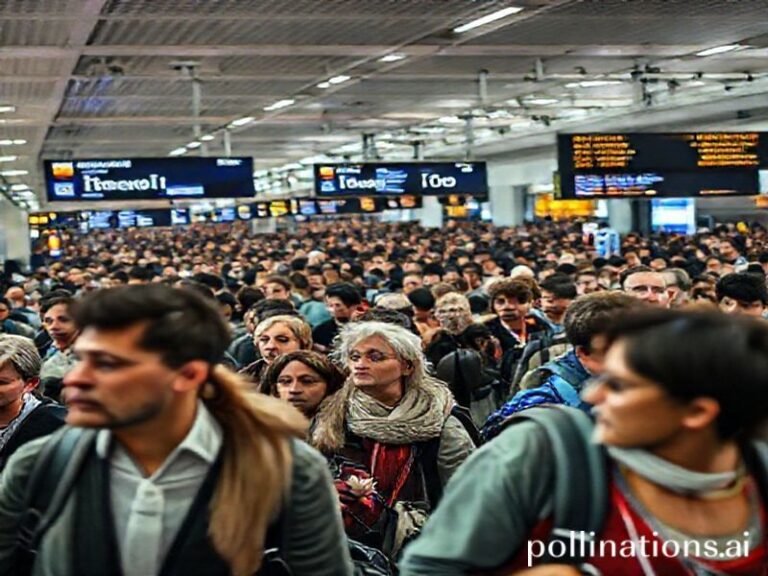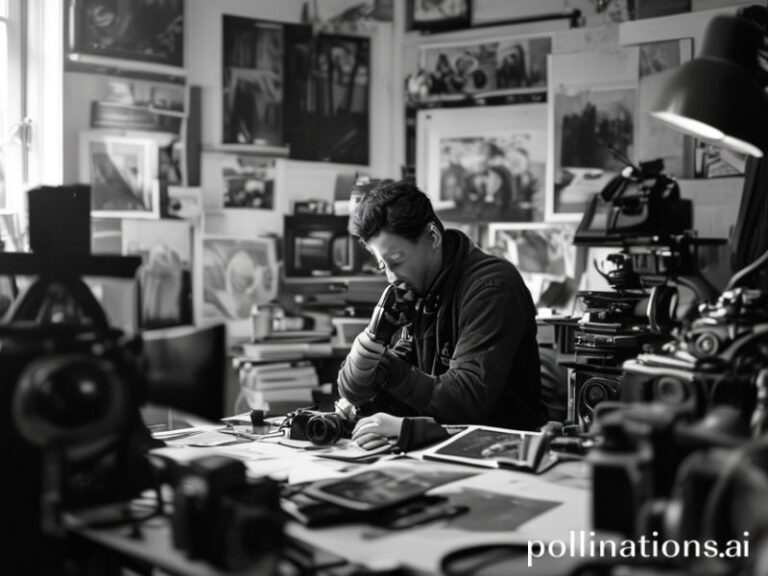Highmark Stadium: Buffalo’s Frozen Monument to Global Late-Stage Capitalism
Highmark Stadium: Where the World’s Problems Take a Commercial Break
By Our Jaded Foreign Correspondent, Nursing a Warm Beer in Orchard Park
Somewhere between the rusting hulk of Buffalo’s old steel mills and the maple-lined cul-de-sacs where snowblowers outnumber children, Highmark Stadium rises like a concrete confession: we may not have fixed climate change, but we did bolt 71,870 seats to the shores of Lake Erie so grown adults can scream at millionaires in tights. To the untrained eye, it’s just another NFL coliseum—aluminum siding, $14 “lab-grown” nachos, and a parking lot that moonlights as a cryogenic chamber from November onward. To the rest of the planet, however, it’s a perfect postcard from late-stage capitalism: a publicly subsidized fortress where the global supply chain of disappointment, hope, and lite beer converges every Sunday.
Globally speaking, Highmark is an economic Rorschach test. Qatar builds air-conditioned stadia in the desert with imported Nepalese labor; Buffalo slaps a new naming-rights sticker on a 1973 relic and calls it progress. Both are hailed as “job creators,” though only one group of workers risks scurvy from the commute. The $1.4 billion replacement promised for 2026—complete with a translucent roof to “let in the Buffalo sunshine” (all six minutes of it)—is already a darling of international bond markets. Munich, Tokyo, and São Paulo investors treat the project like a geopolitical escape room: park your money here, dodge U.S. interest-rate roulette, and pray the Bills don’t relocate to Austin before the ribbon-cutting.
Meanwhile, the stadium’s Wi-Fi routers hum with data packets that have seen more passports than most humans. TikTok clips of shirtless fans in body paint ricochet through Jakarta, Lagos, and Reykjavik, proving that the universal language isn’t love—it’s schadenfreude. When a gust off the lake knocks over a pyramid of Labatt Blue cans, the viral slo-mo becomes a metaphor for the fragile global order. Somewhere in Davos, a consultant screenshots it for a slide titled “Resilience in the Face of Adversity.”
Climate diplomats look at Highmark and see either a cautionary tale or a carbon-offset accounting miracle. On game day, the carbon footprint rivals a small Baltic nation; off-season, it hosts e-waste drives and feel-good pressers where executives plant three saplings and call it even. The stadium’s lease expires in 2023—no, wait, 2025—no, 2027; deadlines here are as fluid as the Canadian border after midnight. The perpetual extension mirrors global climate negotiations: everyone agrees something must be done, preferably by the next commissioner.
International security experts, fresh from analyzing the Nord Stream pipeline, have recently turned their gaze to Highmark’s parking lot tailgates. A single propane grill array has the BTU output of a Moldovan power plant, and the Department of Homeland Security quietly classifies the chili cook-off as “critical infrastructure.” Should a rogue state weaponize 30,000 simultaneous crockpots, Western New York could achieve localized grid independence—or spontaneous combustion. Either outcome, analysts note, would at least make the highlight reel.
And then there’s the geopolitics of fandom itself. The #BillsMafia diaspora now stretches from U.S. Air Force bases in Ramstein to expat bars in Dubai, where fans in borrowed Zubaz pants attempt to recreate table-smashing rituals on IKEA furniture rated for 200 kilos. The United Nations has not yet issued a directive on cultural appropriation of folding tables, but UNESCO is monitoring.
In the end, Highmark Stadium is less a sports venue than a temporal anomaly: a place where 1970s brutalism, 1990s nostalgia, and 2020s crypto-bro optimism collide under metric tons of snow. It reminds the world that while we argue over carbon credits and supply chains, somewhere a city is still willing to mortgage its future to keep 53 athletes and a buffalo mascot from moving south. That, dear reader, is either the death rattle of empire or the most honest thing humanity has built in decades—depending on which passport you’re holding when the final whistle blows.

